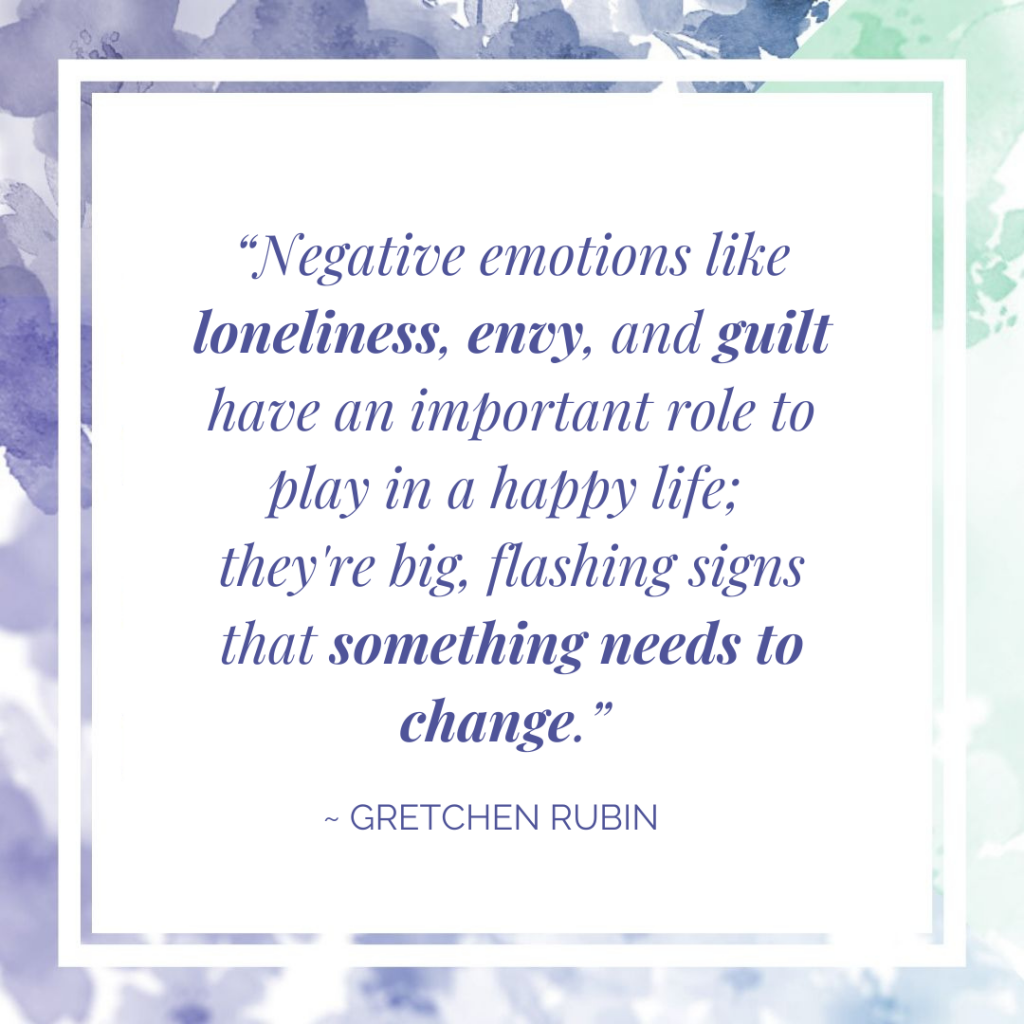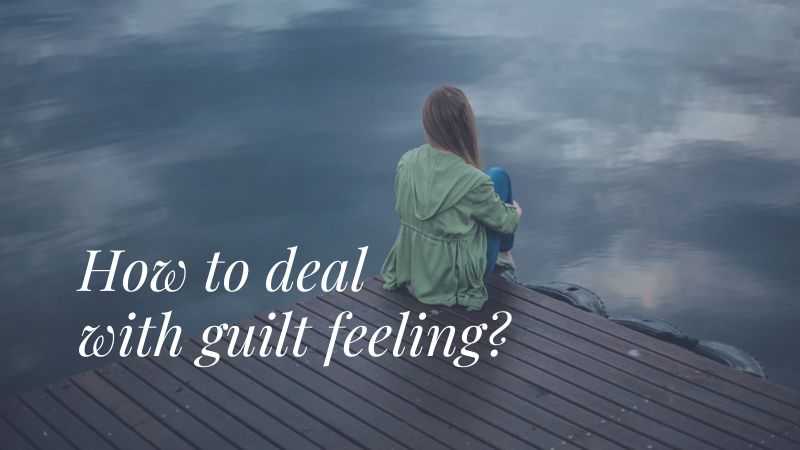WHAT IS GUILT?
It isn’t always easy to understand what guilt is. In fact, guilt and shame are often confused with each other, though they’re distinct emotions. Guilt describes a sense of regret or responsibility that relates to actions taken. People may feel guilt over things they actually did wrong, things they believe were their fault, or things they had no responsibility for. Survivor’s guilt, for example, can affect people who survived tragedies when many others died.
People tend to only feel guilty over actions they see as “bad” or “wrong.” A person who believes they are entitled to a higher wage may steal a small amount of money from their boss without ever feeling guilty. But a person who finds a wallet and keeps the money inside without making any effort to find the owner may feel guilty for months or even years if they believe the “right” thing to do would have been to turn in the wallet.
Some people experience chronic guilt, which can lead to feelings of inadequacy. This type of guilt can lead to destructive actions instead of positive change. People might also manipulate others with what’s known as a “guilt trip” by using a person’s guilty feelings as a tool to them to do what they want.
Someone who feels guilty about something they did might take steps to correct their mistake, apologize, or otherwise make amends. This usually causes feelings of guilt to decrease.
But shame, which describes a regret or sense of responsibility that relates to the self, can be more difficult to address. It’s not always easy to reduce feelings of shame, especially shame that isn’t fully understood. People sometimes feel ashamed of some part of themselves without knowing why. A person might also feel shame when other people know about actions they feel guilty over.
Shame can cause people to feel unworthy or somehow inadequate. It may lead to isolation, acts of self-punishment, or other potentially harmful behaviors.
Sometimes guilt is unhelpful. It can cause physical symptoms, self- doubt decreased self- esteem and shame. It can be difficult to overcome these feelings, especially in the case of chronic guilt. But it is possible, especially with help.
Healthy guilt
Guilt can sometimes be a healthy emotion when it relates to something you have or haven’t done and reminds you to try and fix it, apologize for it, and learn from it.
For example, if you forget your friend’s birthday, healthy guilt might remind you to apologize and put it in your calendar for next year so you don’t forget again.
Unhealthy guilt
Guilt can become unhealthy when you are having irrational feelings about a situation that isn’t your fault or you have no control over, by expecting too much of yourself (this is quite common), or from someone else trying to make you feel guilty.
For example, if a friend failed an exam that you did really well in and you may feel guilty despite the fact that you had no control over how your friend performed. Another example is if you feel guilty for not spending enough time with friends while you are studying for important exams. Sometimes you can expect too much of yourself, or others can expect too much from you. When these expectations exist, they can result in feelings of guilt when they are not met.
Types of Guilt
In general, there are three different types of guilt.
- Reactive guilt: Reactive guilt happens when a person believes they have acted against either their own personal beliefs of what is morally good or the standards society has for acceptable behavior.
- Anticipatory guilt: This guilt is the result of thinking about acting against personal moral standards or the standards of society. A person may choose not to take certain actions because they know it is wrong or believe it may hurt others.
- Existential guilt: This guilt can be more complicated. Existential guilt can describe a person’s feelings for general injustice, or the idea that “Life isn’t fair.” It can also describe the guilt a person feels for the negative impact they may have on the lives of others.
Some researchers further divide guilt into two categories. These categories can be considered separately from the above types of guilt.
- Maladaptive guilt: This kind of guilt often has a negative impact on life. This guilt might include chronic guilt (guilt that relates to shame) and other guilt that leads to mental or emotional distress.
- Adaptive or pro-social guilt: This kind of guilt is believed to be helpful, as it relates to a person’s understanding of wrongdoing and responsibility.
What can you do about it?
You can follow some practical steps to help deal with your guilt.
Identify why you feel guilty
By identifying where your feelings of guilt are coming from you can check if you are feeling healthy or unhealthy guilt. There are practical things you can do to help with your feelings of healthy guilt. Unhealthy guilt might be more difficult to deal with and may take longer to work through.
Apologize
If you identified why you are feeling guilty you could start by apologizing to the person who you think you wronged. Depending on how bad the issue was they might not accept your apology straight away. They might need time to think about it or want to see you making amends and trying to fix the problem.
Try to fix the problem
This might be simple but in some cases, you might need help fixing the problem. You may need to ask the person who you have wronged for help. This can be daunting but in the long run, it is better because you can avoid making the problem worse. A friend or family member who knows about the situation might also be able to offer advice.
Accept it
Recognize that you made a mistake and that you have done all you can do to fix it. Accept that it might take a while for things to go back to normal with the person you have wronged. If you can show them you are sorry and give them time to process this, they will hopefully forgive you.
Learn from it
When you have done what you can to fix the situation reflects on what happened. Learn from the mistake you made, from how you fixed it, and from how the person you apologized to reacted to it all.

What to do if your feelings of guilt are out of control?
If you are experiencing a lot of unhealthy guilt and are struggling to handle it, here are some things you could do:
Talk about it with someone
Talking to someone about your guilt will offer an objective opinion on it. They might help you realize if you are feeling unnecessarily guilty. Saying a problem out loud can also help you to see it differently and make it seem more manageable. You could talk to a family member, a friend, or consider going for counseling to speak to someone in confidence.
Identify why you are feeling unrealistic pressure
If you are putting unnecessary pressure on yourself it might be influenced by an external factor. For example, a parent, guardian, or friend might be expecting too much of you. Try to talk to them and explain how you are feeling. They may not have realized the effect their behavior was having on you.
Some external factors are harder to deal with. For example, if you feel guilty every time you spend money because your parents or guardians are struggling financially. This can be tricky but discussing it with them might help. They might outline what they see as ‘fair’ spending and what they see as excessive. This way you know what you can spend and don’t need to feel guilty about it.
Find out if your guilt is related to something else
You may be experiencing irrational guilt as a result of a different problem. Try to identify what else is going on in your life that could be causing you difficulty, when this problem is resolved it may help to lighten your feelings of irrational guilt.

